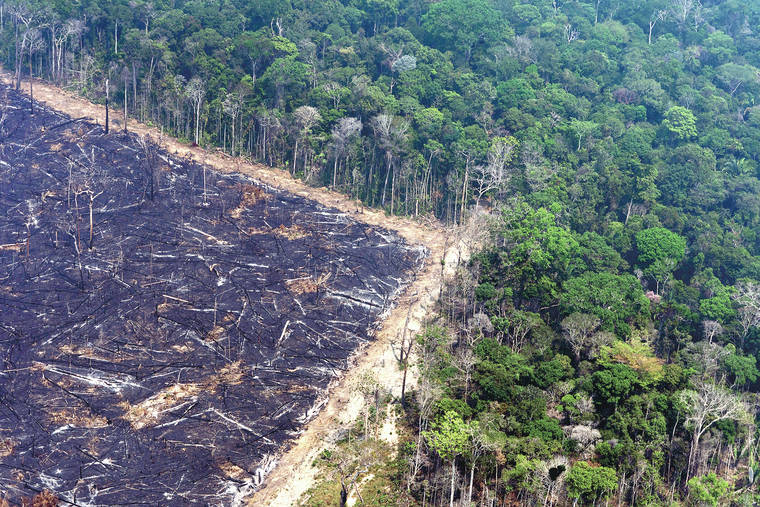PORT VELHO, Brazil — Under international pressure to contain fires sweeping parts of Brazil’s Amazon, President Jair Bolsonaro on Friday authorized use of the military to battle the huge blazes while thousands took to the streets to protest his environmental policies.
Brazilian forces will deploy starting Saturday to border areas, indigenous territories and other affected regions in the Amazon to assist in putting out fires for a month, according to a presidential decree authorizing use of the army.
The military will “act strongly” to control the wildfires, Bolsonaro promised as he signed the decree.
The armed forces will collaborate with public security and environmental protection agencies, the decree says.
“The protection of the forest is our duty,” the president said. “We are aware of that and will act to combat deforestation and criminal activities that put people at risk in the Amazon. We are a government of zero tolerance for crime, and in the environmental field it will not be different.”
Bolsonaro has previously described rainforest protections as an obstacle to Brazil’s economic development, sparring with critics who note that the Amazon produces vast amounts of oxygen and is considered crucial for efforts to contain climate change.
As the president spoke, thousands of Brazilians demonstrated in Rio de Janeiro, Sao Paulo and the capital of Brasilia demanding the government announce concrete actions to curb the fires. People also banged pots from their homes, a traditional mode of protest in South America.
An Associated Press journalist who traveled to the Amazon region Friday saw many already deforested areas that had been burned.
Charred trees and fallen branches were seen around Porto Velho, the capital of Rondonia state, which borders Bolivia. In some instances, the burned fields were adjacent to intact livestock ranches and other farms, suggesting the fires had been managed as part of a land-clearing policy.
A large column of smoke billowed from one fire, and smoke rose from a couple of nearby wooded areas.
Life appeared normal in Porto Velho. However, visibility from the windows of an arriving airplane was poor because of smog enveloping the region.
Small numbers of demonstrators gathered outside Brazilian diplomatic missions in Paris, London, Geneva and Bogota, Colombia, to urge Brazil to do more to fight the fires. Larger protests were held in Uruguay and Argentina.



